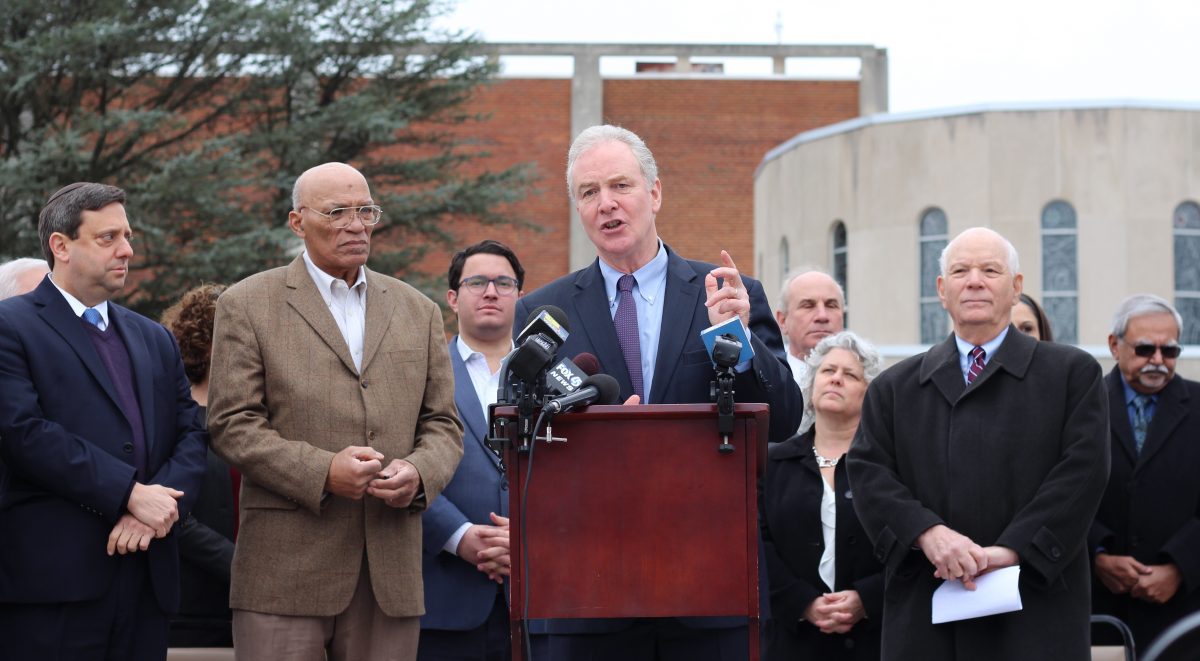
Over the course of 12 days in November 2016, United Maryland Muslim Council director Mubariz Razvi and his wife were camped at the University of Maryland Medical Center’s shock trauma ward. Their adopted 23-year-old son, Ali Shah, was suffering from sepsis, on life support, and unfortunately, didn’t have much time left to live.
Around a week into agonizing over Shah’s health, a woman saw that the ward doorway was clear, walked into the room, and rudely confronted Razvi.
“She blatantly stood a foot away from my face and said, ‘You don’t belong here,’ and ‘Get out of here,’” Razvi recounts. “The shocking thing was that, if she was in that area, that means that she had a family member in the same ward.”
The situation escalated to a point where the woman threatened to call hospital security on Razvi, who had simply been tending to his family. Razvi turned the tables, enlisting security himself. The woman fled before she could be questioned.
“That is an example of what security systems can do for you when they’re in place,” Razvi says. “It deterred her from going any further.”
Since that event almost three years ago, similar incidents and others much worse have become more commonplace. There has been a stark rise in hate crimes across the country, according to reporting by the FBI. It’s for this reason that religious institutions and community businesses have become more proactive in ensuring the safety of their congregants and patrons. More than $3 million in aid from the same grant program has been provided to these institutions in the past year. But as lawmakers see it, as the danger grows, so too does the need to increase funding to support these efforts.
Earlier this month, Maryland congressmen John Sarbanes, Ben Cardin, and Chris Van Hollen introduced a proposal to quadruple federal funding for the Nonprofit Security Grant Program from $90 million to $360 million in the 2021 fiscal year. The program, established in response to 9/11, is designed to provide security assistance to religious and community nonprofits at high risk of terrorist attacks across the country. Its promotion has been co-signed by Senate Minority Leader Chuck Schumer.
“Our overriding goal has to be to reduce the number of hate crimes that are being committed,” says Van Hollen, who served as a representative for Maryland’s 8th District from 2003-2017 before being elected to the U.S. Senate. “That’s the most important thing we can do to help reduce people’s fears. But, to the extent that you can provide a more secure environment, people can feel more safe in practicing their religion or going about their daily lives.”
Given the increasing prevalence of hate crimes across the country, government leaders say they need to both institute stronger measures to try to prevent such crimes, while also providing appropriate assistance to respond to attacks.
“It would be irresponsible not to take steps to protect places that we know have been targets of hate crimes,” Van Hollen says. “We need to be confronting [the increase] in two ways. One is to bring the different faith communities together in solidarity to speak out against hate crimes. The second thing we need to do is to provide protection for places of worship and other places that are targeted.”
One of the many reasons there is a sense of urgency surrounding this problem is that it’s not just affecting one community. Elissa Sachs-Kohen, the rabbi at Baltimore Hebrew Congregation for the last 16 years, says anti-Semitic crimes remain an increasing concern in the Jewish community. Baltimore Hebrew Congregation was one of many Maryland institutions that received part of the more than $3 million funds from the grant program in the past year.
“The Jewish community feels more at-risk than it has in many years,” Sachs-Kohen says. “In my Rabbinic tenure, there’s always been a very low-level hum. There are people who hate Jewish people and who might choose to do something about that hatred. It’s no longer a low-level hum.”
Among the suggestions for how to use the funds include increasing physical security presence and surveillance, as well as fencing around places of worship. Leaders also hope that talking about these issues will help members of their communities, and the community at-large, to understand why these attacks are happening and what they can do to combat them.
“I think that what [calls to increase funding] also point to is this has been a neglected area in the past,” Sachs-Kohen says. “Whenever you’re looking at something quadrupling, it suggests maybe that there wasn’t as much as a need before, but it also suggests that we were not doing our due diligence before.”
Van Hollen serves on the Senate Appropriations Committee, and Maryland 2nd District Representative Dutch Ruppersberger, who has also been a part of this initiative, serves on the House Appropriations Committee. The two plan to collaborate with their colleagues to put together a workable funding resolution for the 2021 fiscal year, hoping for approval in both the House of Representatives and U.S. Senate later this year.
Even so, for Razvi, these ideas are short-term solutions to a larger problem, one that he hopes one day will be left in the past.
“With additional funding, I definitely believe it will help us keep houses of worship secure,” he says. “But at the same time, there has to be a change of opinion in the public’s mind that, we might speak a different language, we might look different, but we’re all one humanity and one human race.”